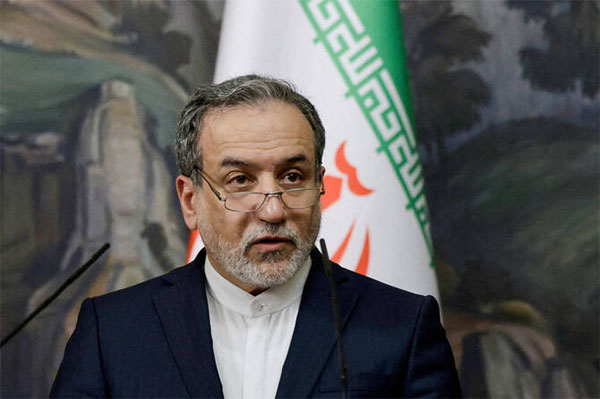Daijiworld Media Network - Tehran
Tehran, Sept 20: Iran has firmly rejected what it describes as "political maneuvering and unjust pressure" over its nuclear program, cautioning that such tactics could escalate tensions in the region. Foreign Minister Seyed Abbas Araghchi made the statement during a phone conversation with Rafael Grossi, Director General of the International Atomic Energy Agency (IAEA), according to Iranian state media IRNA.
Araghchi reaffirmed Tehran’s commitment to diplomacy and technical cooperation, while criticizing recent international developments that he said threatened to derail progress.
The conversation followed the UN Security Council’s failure to extend sanctions relief granted under the 2015 Joint Comprehensive Plan of Action (JCPOA) — the landmark nuclear deal between Iran and six world powers.

Last month, Britain, France, and Germany — collectively known as the E3 — invoked the JCPOA’s “snapback” mechanism, which allows for the automatic reimposition of U.N. sanctions within 30 days if Iran is deemed to be in violation of the agreement. According to Xinhua, those sanctions are expected to take effect later this month.
Araghchi expressed concern over the “politicized atmosphere” at the latest IAEA board meeting, arguing that Iran's engagement with the agency remained within the bounds of international law. He also criticized the E3’s actions as undermining trust and derailing the possibility of renewed dialogue.
The Iranian Foreign Ministry separately condemned the European move, calling it “illegal, unjustified, and provocative”, and accused the E3 of sabotaging ongoing diplomatic efforts.
European officials, meanwhile, claim Iran has failed to comply with JCPOA requirements by limiting inspector access, withholding transparency about its nuclear materials, and missing a late-August deadline to present a roadmap for re-engaging with the United States and other stakeholders.
Iran had participated in multiple rounds of indirect talks with the U.S. earlier this year. However, negotiations stalled following Israeli airstrikes on Iranian nuclear facilities in June, reportedly carried out with U.S. support, which led Tehran to suspend both dialogue and cooperation with the IAEA.
The JCPOA, originally signed in 2015, began to unravel after the United States withdrew from the agreement in 2018 under the Trump administration. In response, Iran gradually reduced its compliance, enriching uranium beyond agreed limits and installing advanced centrifuges.
As tensions rise once more, Araghchi emphasized that the only sustainable path forward is through mutual respect, non-interference, and a return to the negotiating table.